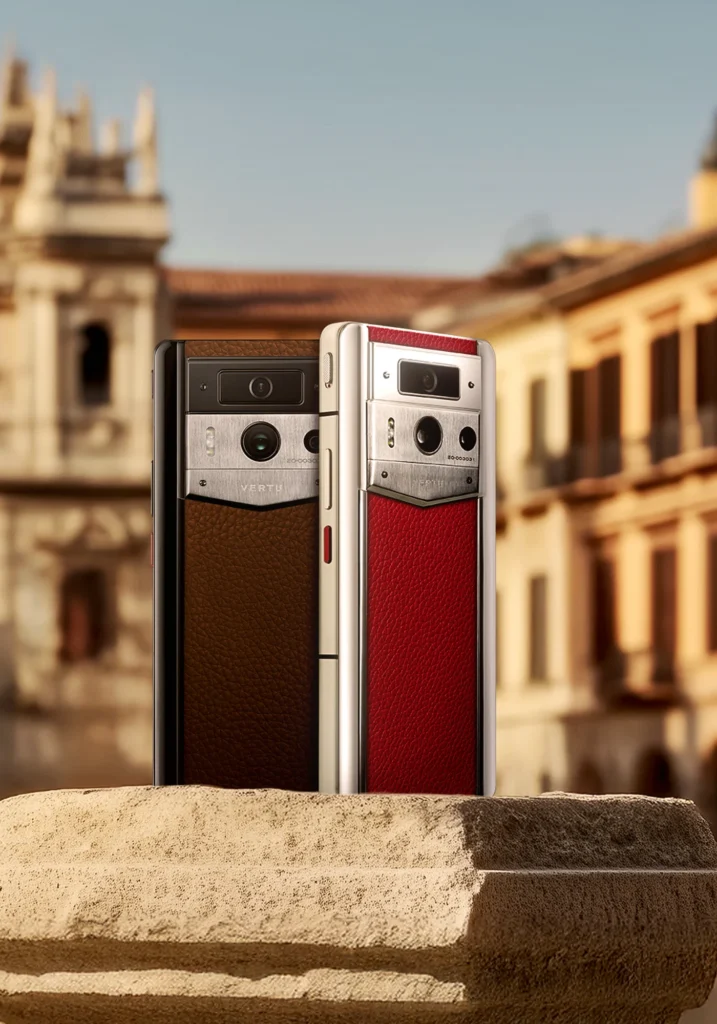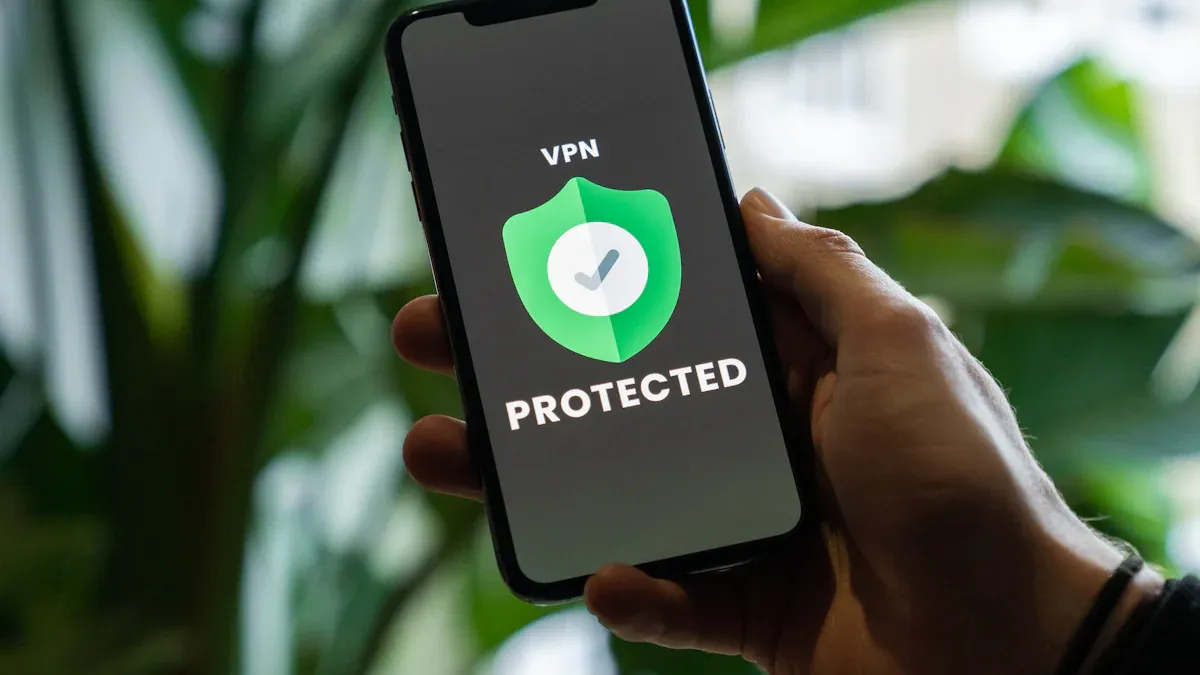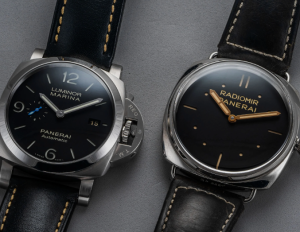
You want a Mobile Phone with Private Communication that keeps your talks private now more than ever. People worry about keeping their information safe, and this makes sense. Hackers go after phones that are not protected. Public Wi-Fi can make your private data unsafe. Even popular apps can hurt your online privacy if you are not careful. Updating your phone and using strong passcodes help, but you also need a Mobile Phone with Private Communication to keep your private talks safe. In 2025, you are not the only one who feels this way:
- 52% of mobile users worry about AI privacy and secure communication.
- 92% of Americans care about their privacy online.
A secure phone gives you a safe place for private talks. It helps you feel calm in a world where only the best secure smartphones keep your talks truly safe. With a Mobile Phone with Private Communication, you can focus on what is important, knowing your secure smartphone keeps every word safe.
Key Takeaways
- Pick a mobile phone that has strong encryption. This helps keep your conversations private. Find phones that use Advanced Encryption Standard (AES) for better security.
- Make sure your phone gets regular software updates. Updates protect your phone from new dangers. They help your privacy tools work well.
- Check your app permissions often. Only let apps use what they need. Look at these settings to keep your privacy safe.
- Think about phones with biometric security features. These can be fingerprint or facial recognition. They let you unlock your phone fast and keep your data safe.
- Learn about the company that makes the phone. Choose brands that care about security. Pick ones that fix problems quickly.
Top 10 Mobile Phones with Private Communication
You want a mobile phone with private communication that keeps your secrets safe. Here are the most secure mobile phones for 2025. Each secure smartphone on this list has strong privacy features. These phones protect your information well. Let’s see what makes each one special.
iPhone 16 Pro Max
The iPhone 16 Pro Max is a secure phone. Apple gives you many privacy tools and security features. You can do these things to keep your conversations private:
- Make a strong passcode using numbers and letters.
- Use Face ID to unlock your phone quickly and safely.
- Turn on two-factor authentication for your Apple ID.
- Use Find My iPhone to find your device if lost.
- Update iOS often for better security.
- Check app permissions and change them when needed.
- Stay away from public Wi-Fi or use secure Wi-Fi.
- Clear your browsing history to keep it private.
- Turn off lock screen notifications to hide info.
- Use a VPN to protect your internet connection.
- Try antivirus software for extra safety.
- Use built-in features like Password Management, Safety Check, Mail Privacy Protection, iCloud Private Relay, and Lockdown Mode.
This secure smartphone lets you control your privacy. Apple’s updates and privacy tools make it one of the best secure smartphones for private communication.
iPhone 17 Pro Max
The iPhone 17 Pro Max is even more private. Apple adds new features to make this secure phone harder to break into. Here is a quick look:
| Feature | Description |
|---|---|
| eSIM Technology | Gives you more security because thieves can’t remove your SIM card if your phone is lost or stolen. |
| Enhanced iOS 26 | Uses on-device processing to keep your data private and boost security with smart features. |
This mobile phone with private communication builds on Apple’s strong privacy. This secure smartphone is great if you want the newest security.
Google Pixel (GrapheneOS)
If you want a privacy-focused phone, try the Google Pixel with GrapheneOS. This secure phone uses open-source software. Experts can check the code for safety. Here’s what you’ll like:
- GrapheneOS removes extra code to make attacks harder.
- You control network and sensor permissions with easy switches.
- The phone changes your MAC address every time, so tracking is tough.
- Private screenshot mode hides sensitive info.
- LTE-only mode blocks old and risky network code.
- Wi-Fi and Bluetooth turn off by themselves when not used.
- Stronger memory safety and kernel hardening keep hackers out.
- You can use sandboxed Google Play Services to keep your data private.
This secure smartphone puts you in charge. It is one of the most secure mobile phones for people who want open-source protection.
Tip: Open-source software lets you see how your secure phone works. This helps you trust your device and find problems fast.
Bittium Tough Mobile
Do you want a secure phone with strict standards? The Bittium Tough Mobile is for you. This device is made for confidential communication and has top security certifications.
| Certification Level | Description |
|---|---|
| NATO Restricted | Approved for secure communications for NATO. |
| Finnish TL III (Confidential) | Certified for confidential communication in Finland. |
This mobile phone with private communication meets government and military needs. This secure smartphone is tough, reliable, and trusted worldwide.
BlackBerry Key3
BlackBerry is known for its keyboards. The BlackBerry Key3 brings the keyboard back with modern security. Here’s why this secure phone is special:
- Physical keyboard helps you type fast and well.
- Advanced encryption protects your business data.
- Secure storage keeps your files safe.
- You control app permissions and decide what apps can do.
This secure smartphone is great for work and private communication. BlackBerry’s focus on security makes it one of the best secure smartphones for professionals.
Samsung Galaxy S25
The Galaxy S25 is a secure phone with smart features for private chats. Here’s how it keeps your conversations safe:
| Security Measure | Description |
|---|---|
| RCS-enabled data encryption | Encrypts your messages during transmission. |
| Spam protection | Blocks unwanted messages for a safer experience. |
This mobile phone with private communication is easy to use. Samsung’s updates and strong security make it one of the most secure mobile phones for daily life.
Vertu Aster P
If you want luxury and privacy, pick the Vertu Aster P. This secure phone uses advanced security to protect your information. You get biometric authentication and encrypted communication. These features keep your calls and messages private. The Vertu Aster P is a secure smartphone for people who want style and safety.
Xiaomi Redmi
Xiaomi Redmi is a secure phone at a good price. You get regular software updates and privacy tools to protect your data. Xiaomi adds security features like app permission controls and secure folders. This mobile phone with private communication is a smart choice for value and protection.
Motorola Razr Ultra
The Motorola Razr Ultra is a secure smartphone that looks cool. This secure phone has biometric security, regular updates, and privacy settings. You can use fingerprint or face unlock for quick access. Motorola gives you tools to manage app permissions and keep your data safe. This is a mobile phone with private communication that fits your style.
Galaxy Z Fold 7
The Galaxy Z Fold 7 is a secure phone with many privacy features. Here’s what you get:
| Feature | Description |
|---|---|
| Biometric Security | Unlock with your face or fingerprint. |
| Secure Folder | Keep personal apps and files separate for extra privacy. |
| Knox Security | Defense-grade security built into the device. |
| Knox Vault | Extra protection for your most sensitive data. |
| Knox Suite | Tools for IT admins to manage and secure devices. |
| Personal Data Engine | New feature for better data protection. |
| KEEP | Enhanced encrypted protection built into the device. |
This mobile phone with private communication is great for work or play. This secure smartphone is one of the most secure mobile phones for people who want new tech and top security.
Note: When you pick a secure phone, look for regular updates, hardware protections, and privacy tools. These features keep your private communication safe.
Security Mobile Phones Features

Encryption
You want your talks to stay secret. Security mobile phones use strong encryption to keep calls and messages safe. When you call someone, your voice turns into secret signals. Only the person you call can hear your words. End-to-end encryption stops others from listening. Most secure phones use Advanced Encryption Standard (AES) and hardware encryption. Some phones have a special chip or secure enclave for extra safety. Data encryption works in two ways: Data-at-rest encryption keeps your files safe when stored. Data-in-transit encryption protects your info while sending it. Encrypted communications help keep secrets safe when texting, calling, or sharing files.
Tip: Pick secure smartphones with strong security protocols. These features help protect your information every day.
Privacy Tools
Privacy tools help you control what you share. You can use privacy apps and software to block unwanted access. Setting up a screen lock like a PIN, password, or fingerprint keeps your phone safe if lost. Using a VPN encrypts your connection and lowers spying risks. Secure phones let you manage app permissions, so you choose what apps can see. Data encryption at rest and in transit stops others from getting your private info.
- Use privacy tools to control your data.
- Hide sensitive files in secure folders.
- Turn off location sharing when not needed.
Biometric Security
Biometric security makes unlocking your phone fast and safe. You can use your face or fingerprint to open your device. Here are common methods:
| Biometric Method | Security Features | Limitations |
|---|---|---|
| Facial Recognition | Quick and easy, but can be tricked by photos if not 3D mapped. | Can be fooled; less safe in some cases (like wearing masks). |
| Capacitive Fingerprint | Fast and low chance of mistakes. | Can be tricked by fake 3D fingerprints. |
| Ultrasonic Fingerprint | Makes a 3D image, so it is harder to trick. | Needs special hardware; not on all phones. |
Biometric security adds another layer of protection. You get speed and safety together.
Software Updates
Software updates keep your phone safe from new dangers. When you update, you get fixes for problems hackers might use. Here’s how updates help: Security updates protect your phone from hackers, malware, and viruses. Updates close gaps that could let someone break in. Companies release updates to fight new risks. Regular updates make it harder for anyone to steal your data. You stay ahead of cyber threats and keep your phone working well.
Note: Always check for updates on secure phones. Updated software gives better protection for private conversations.
Best Secure Smartphones Criteria
When you want a phone that keeps your talks private, you need to know what makes a smartphone safe. Let’s look at the most important things to check.
Hardware Protections
You want your phone to have strong hardware protections. Look for phones with a special encryption chip. This chip keeps your data safe, even if someone tries to break in. Some phones use quantum encryption or quantum-resistant chips. These make it very hard for hackers to crack your codes. A secure phone also has tamper-proof hardware. If someone tries to open your device, it locks your information. These features help you trust your phone and keep your data safe.
OS Security
A strong operating system is key for smartphone safety. You need a phone with a hardened operating system that blocks threats before they reach your data. iOS and Android have better privacy tools now, but not all phones use the same protection. A hardened operating system gives you security for your device and apps. It lets you use end-to-end encryption for calls and messages. With a hardened operating system, you get updates that fix new problems fast. This keeps your private info safe every day.
A phone with a hardened operating system and end-to-end encryption keeps your personal data safe from hackers and spies.
Manufacturer Reputation
You might think picking a big brand means you get the best security. That is not always true. Even phones from trusted brands like Apple or Google can have risks. In early 2024, experts found threats on thousands of devices, even those known for security. Mobile technology changes fast, so new problems can show up at any time. Always choose a manufacturer that works hard to fix issues and keeps your phone updated. This shows they care about your privacy and keeping your information safe.
User Control
You should always have control over your phone’s privacy settings. The best secure smartphones let you manage app permissions one by one. You can change what each app can see or do at any time. Here’s how user control works:
| Feature | Description |
|---|---|
| Granular Permissions | You decide what each app can access, like your camera or contacts. |
| Modify Access | You can change these choices whenever you want, keeping your data private. |
- Check your app permissions often.
- Only download apps you trust.
- Change your privacy settings to limit data collection.
When you control your settings, you make your phone safer and keep your talks private.
Comparison: Most Secure Mobile Phones
You want a phone that keeps your talks secret. Let’s see how the top secure smartphones compare. The table below shows their privacy and security features. This helps you pick the best phone for your needs.
| Phone Model | Key Security Features | Encryption Standards | Privacy Tools | Price Range |
|---|---|---|---|---|
| iPhone 16 Pro Max | Face ID, regular updates, app permission control | AES hardware encryption, secure enclave | Mail Privacy Protection, Lockdown Mode | ~$1199 |
| iPhone 17 Pro Max | eSIM, on-device processing, Safety Check | AES, dedicated encryption chip | iCloud Private Relay, Password Manager | ~$1299 |
| Google Pixel (GrapheneOS) | Titan M2 chip, hardened OS, fast patches | AES, exploit mitigation | Sandboxed Play Services, MAC randomization | ~$999 |
| Bittium Tough Mobile | Dual-boot, tamper-proof, Privacy Mode button | Military-grade encryption | Secure offline mode, NATO Restricted | ~$2150 |
| BlackBerry Key3 | Physical keyboard, advanced encryption, secure storage | End-to-end encryption | App permission control | ~$899 |
| Samsung Galaxy S25 | Knox Vault, biometric unlock, spam protection | AES, defense-grade encryption | Secure Folder, Personal Data Engine | ~$1099 |
| Vertu Aster P | Biometric authentication, encrypted calls | AES, encrypted communication | Secure messaging, luxury support | ~$4200 |
| Xiaomi Redmi | Regular updates, secure folders, app controls | AES, device encryption | Permission manager, privacy dashboard | ~$499 |
| Motorola Razr Ultra | Biometric unlock, privacy settings, frequent updates | AES, device encryption | App permission control | ~$999 |
| Galaxy Z Fold 7 | Knox Suite, biometric security, secure folder | AES, dedicated encryption chip | Knox Vault, encrypted protection | ~$1799 |
Tip: For the best security, pick phones with a dedicated encryption chip and regular updates. These features help keep hackers away from your data.
Some phones, like the Bittium Tough Mobile, use military-grade protection. Others, like the iPhone 17 Pro Max and Galaxy Z Fold 7, have a special encryption chip for extra safety. Privacy tools, like secure folders and permission managers, help you control what apps can do. If you want private communication, check these features before you buy.
Choosing Confidential Phones
Assessing Needs
You want a confidential phone that fits your life. First, think about how you use your phone each day. Is it for work, personal use, or both? Mixing work and personal calls can be confusing. Using one phone for everything can risk your private data. If you lose your phone, your information may not be safe. Company rules might limit how you use your phone. This can change your privacy and how you look at work. Check this table to help you see what matters most:
| Factor | Description |
|---|---|
| Privacy Issues | Using personal phones for work can mix up personal and business calls, which can risk private data. |
| Security and Compliance | Personal phones may not follow company rules, so losing them can cause data problems. |
| Work-Life Balance | Mixing work and personal calls can make it hard to relax, which can cause stress. |
| Rigidity | Company rules can limit how you use your phone, which can change your privacy and how you look at work. |
Usability vs. Security
You want a phone that is easy to use and keeps your data safe. Good security should not make your phone hard to use. Look for features that protect you but do not slow you down. Here are some things to remember:
- Security should work quietly in the background.
- Mobile Device Management and Mobile Application Management keep your phone safe without making it hard.
- Regular updates and a special encryption chip help keep your phone secure and simple.
- Easy authentication, like fingerprint or face unlock, makes your phone quick and safe.
- Quantum security features can give extra protection.
Tip: Choose a phone with biometric features. You get strong security and a smooth experience.
Budget
You want the best phone for your money. Some secure phones cost more because they have better protection. Think about what you really need. If you handle private information, spending more may be smart. If you only need basic protection, you can find good phones for less. Always check if the phone gets regular updates and has strong security. A phone with a special encryption chip may cost more, but it helps you feel safe.
Who Needs Security Mobile Phones

You may ask who really needs a security mobile phone. Many people can use extra protection for their phones. Let’s see which groups use secure devices every day.
Professionals
Some jobs need privacy to keep information safe. If you work with private details, you need a phone that protects your talks. You must stop leaks and keep hackers away. Here are some jobs that use secure mobile phones:
- Legal sector: Lawyers and law firms keep client details secret.
- Healthcare sector: Doctors and nurses follow HIPAA rules for patient data.
- Domestic and sexual violence programs: Advocates use secure devices to talk with survivors and protect their info.
You want to follow rules and keep work and personal life apart. A phone with a special encryption chip helps you do this. You can trust your device to keep your information safe.
Tip: If you work with private data, pick a phone with secure communication and regular updates.
Privacy-Conscious Users
You care about privacy and want to keep your info safe. You do not want others to see your messages, calls, or photos. Maybe you worry about apps tracking you or someone stealing your data. Secure mobile phones let you control your settings. You can manage app permissions, use encrypted messaging, and hide your location. These features help you feel safe every day.
- Use strong passwords and biometric unlock.
- Turn off location sharing when not needed.
- Check your privacy settings often.
Activists & Journalists
If you report news or fight for change, you need a phone that keeps your work safe. You may face risks like losing your device or having it taken. Secure mobile phones help you stay safe in hard times.
- Hide notifications so others cannot read your messages.
- Back up your data before and during protests to keep it safe.
- Do not agree to a search if you get detained. You have the right to protect your privacy.
You want to keep your sources and stories safe. A secure phone helps you do your job without fear.
You want your conversations to be private. Phones have many risks now. Apps might share your information. The government can track your location without asking in some places.
Lots of people do not know police and apps can get phone data, even if you think it is safe or gone.
When you choose a phone, look for an encryption chip. Check your privacy settings often. Pick a phone that gets updates. Always make privacy important every day.
FAQ
What makes a phone secure for private conversations?
You want a phone that keeps your chats safe. Look for strong encryption. Make sure your phone gets regular updates. Privacy tools help protect your information. Phones with an encryption chip give extra safety from hackers.
Can I use regular apps on a secure smartphone?
Yes, you can use most apps. Always check what each app can do. Update your phone often to stay safe. Secure phones let you control app permissions.
Do secure phones cost more than regular phones?
Secure phones can cost more because they have better hardware. They also have extra privacy features. You can find cheaper phones with good protection if you compare models.
How do I keep my phone safe if I lose it?
Set a strong passcode. Use fingerprint or face unlock. Turn on device tracking. If you lose your phone, you can lock or erase it from far away.
Who needs a secure mobile phone the most?
You need a secure phone if you work with private data. People who care about privacy or travel a lot need one too. Journalists, lawyers, and activists use secure phones to keep their talks safe.








